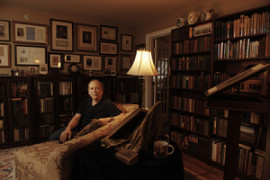Combining diverse artworks from across the Morgan’s collections and some exceptional loans, Come Together: 3,000 Years of Stories and Storytelling explores how stories shape our world. The exhibition showcases over 130 objects, including drawings, paintings, photographs, printed…
Event Calendar
The New York Public Library's major exhibition A Century of The New Yorker draws on NYPL's collections, including the magazine's voluminous archives and the papers of many of its contributors, to bring to life the people, stories, and ideas that made The New Yorker.
Over…
Drawing on an array of PUL’s manuscript and rare book collections, this exhibition will commemorate the 250th anniversaries of U.S. independence and the Battle of Princeton, and showcase Princeton’s archival treasures from the revolutionary era alongside documents and artifacts…
The Interborough Rapid Transit Company (IRT) opened New York City’s original underground subway line in October 1904. While the city was one of the most diverse in the country, before the introduction of the subway, most New Yorkers were not in regular contact with people…
When Langston Hughes Came to Town explores the history and legacy of Langston Hughes through the lens of his largely unknown travels to Nevada and highlights the vital role Hughes played in the Harlem Renaissance and beyond. James Mercer Langston Hughes (1901-1967) was born in…



